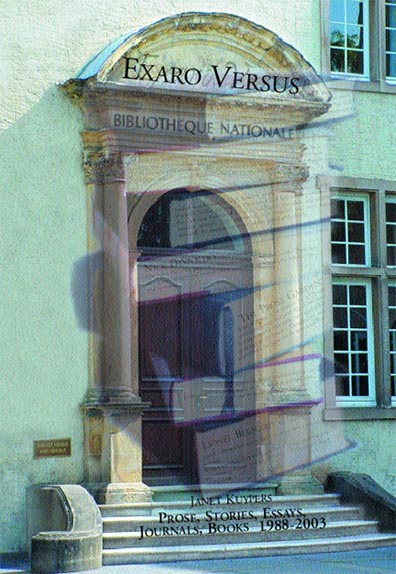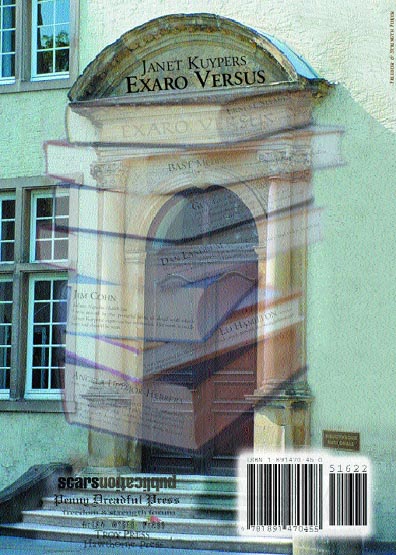![]()
![]()
![]()

Are we looking for Diversity or Political Correctness?
Okay, let’s get the basics down first. I’m white. Big strike against me, from a world-culture perspective, because I must be an oppressor. But I’m a writer, which probably isn’t hurdling me into the upper class, and I’m a woman, which has it’s own set of relatively heavy baggage to carry around.
But I’ve always looked at myself as a writer, not a female writer. I’ve always judged myself, and hoped others would judge me, on the basis of my creative ability as a writer, not on the color of my skin or whether I had big breasts or which sex I was more attracted to.
But in working extensively in the north side poetry scene in the past six months, I’ve noticed the issue of diversity brought up in a few different forms. They can be pigeon-holed into three catch-phrase categories: Working Too Hard to be Politically Correct, Crossing Over into Another Culture, and Using your Diversity to Your Creative Advantage.
Working Too Hard to be Politically Correct
I was working with a group of writers touring the nation this winter. In choosing who should be part of this tour, we had decided upon myself and four men - all white. And then some of the other members of the group started asking - is this group not diverse enough? We’re all straight - maybe we need gay and lesbian representation. There’s only one woman so far - do we need more? Should we be looking for African Americans to fill out this group?
And you see, these were questions I had never thought of before. I mean, I never thought of watching someone because they were gay or straight, or white or black, or male or female. Okay, maybe female, a bit. But it never stopped me from looking for talent across different ethnic, cultural or sexual lines. And I never thought that a group of people going on tour needed to fill quotas in order to be politically correct. I mean, can you imagine a heavy metal band going on tour saying, “Maybe we should bring a rap group and a Christian folk band with us?”
The thing that might make this group work well together is the fact that we may have have somewhat similar cultural backgrounds. Our work can tie in better together. It may actually seem like a cohesive show; in setting up a show the first priority should be to make the show as a whole the best it can be, not to make sure every skin color is covered in the readers. Not that we shouldn’t have other backgrounds in the tour. But maybe looking for the best talent is the better way to go, and if the first people that become part of the group have similar stories to tell, well then, maybe that would work to our advantage.
Crossing Over into Another Culture
Primarily, I attend opens mikes on the north side, such as Joy Blue, Lilly’s, Estelle’s, Red Lion, even sometimes Weeds. Once I was invited to attend the afro-centric Lit X’s Saturday night open mike. I noticed a few things:
1. It was in a darkened basement in the back half of a book store. I felt like I needed a secret password and handshake to get in.
2. There was a $3 cover. I wasn’t aware of this until I got to the door; I usually never patronize places that make you pay to entertain the crowd, or expect cheap poets to actually pay money just to sit in a room for a while. They can do that at home for free.
3. As I walked in, I almost tripped over light cords running all over the floor; the stage consisted of a well-lit corner of a small unfinished basement room. Oh, and the fold-out chairs were filled to capacity (which goes to show that atmosphere isn’t everything). I had to stand in the back.
4. Everyone was holding either an incense stick or a clove cigarette. Versus a beer and a Marlboro Red, which is what I’m more used to seeing.
Beyond that, there were very good readings, it was a fascinating experience, and I’m glad I went. There’s obviously a demand for poetry readings and open mikes that appeal to different cultures; it was nice to have a showcase of it in one night, at one open mike. I just wish that for their benefit, they had a nicer place to read.
It’s not something I would go to regularly. I must admit, I felt a bit out of my element. Not because they made me feel that way; the people I talked to were glad everyone was there and everyone was very nice, as well as very talented. No, I felt out of my element solely because this experience was something I’m not used to. To submerge one person with one culture into another culture might be overkill. But to get just a taste of it is always a treat. That is great, to experience something different, even if only once in a while.
Using your Diversity to Your Creative Advantage
As I said, I’m a writer, and I’m female, but I never thought of myself as a “female writer.” But I’m sure that men listen to my work and think of me as a “female writer,” even if that decision is based solely on my own writing. I write about rape and domestic violence. I write about flirting with men. I write about being a woman.
In other words, I write about the things I know. That’s natural; your best work is going to be on the things you’ve done the most research on. And a writer’s entire life is research for poetry.
And yes, I’ve written both about the joys of being female and the oppression I feel in a patriarchal society. But is that what exploring diversity is all about?
A friend of mine, a talented writer that I had talked to a few times before I heard him read, read a poem in front of me on stage about growing up in a biracial family, about all the taunts and jeers and stares he gets, about how he didn’t know how to behave when he walked down the street. About how people thought of him, about how they judged him before knowing him.
And I’ve written about that when it comes to women many times.
And then I thought, but I never thought about the color of his skin before he brought it up on stage.
I noticed after that first reading that over half of the work he read on stage in my presence was about this experience, about living half-black in a white world.
I recently told him, I said, “You know, just so you know, I never thought about the color of your skin until you brought it up in your writing.”
And he looked at me, a bit surprised, and then he finally said something to the effect of, “But that’s my hook.”
I think he was pleased that someone looked at him as a human being, but at the same time, we all assume we’re all so different. And what if we’re not?
Yes, you write about what you know. But you can learn more about what you think you know as well as what you don’t know, just by listening to the stories other people in the Chicago poetry scene have to say. The voices are out there, voices on how they think they’re perceived, and about how they perceive the world.
The important thing is not to worry too much about getting the right amount of cultural diversity, but just to open up your mind and listen.
Previously Published in Political Correctness and Creativity, http://www.poetrypoem.com/poetrybooks, http://www.mishibishi.net/kuypers.html, Tunnel Rat, Children Churches and Daddies volume 132, http://www.yotko.comjk/jk.htm, http://www.deepthought.com/scars/deepthought-dot-com/kuypers-writing.htm, A Rant of my Own at http://www.yotko.com/a-rant-of-my-own/diversity-political-correct.htm, and in the books Survive and Thrive and Contents Under Pressure.
![]()
![]()
![]()

